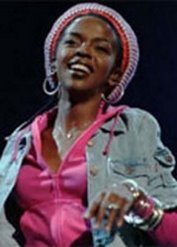New leader's pledge: Unite Liberia
Inauguration for Africa's first elected female head of state
ELLEN JOHNSON SIRLEAF
AGE: 67. Born October 29, 1938 in Monrovia, Liberia.
EDUCATION: M.P.A., Harvard University, 1971. She also earned an economics diploma from the University of Colorado in 1970, and a B.B.A. in accounting from Madison Business College in 1964.
CAREER: A long-standing member of Liberia's political elite, Sirleaf served as finance minister under ex-President William Tolbert before he was toppled and killed in 1980 coup. She fled the country shortly afterward, taking up top jobs at Citibank, the United Nations and the World Bank.
RETURN TO POLITICS: In 1997, she made a failed bid for the presidency, losing to ex-president-turned-warlord Charles Taylor in a vote he won amid a climate of fear. After Taylor was forced into exile as part of a deal to end Liberia's civil war in 2003, Sirleaf returned to make a successful run for the presidency in late 2005.
FAMILY: Sirleaf is a widowed mother of four, and has eight grandchildren.
SOURCE: The Associated Press
MONROVIA, Liberia -- Ellen Johnson-Sirleaf has been sworn in as Liberia's new president, becoming Africa's first elected female head of state and vowing to lead the country away from its turbulent past.
Sirleaf took the oath of office Monday at an inauguration ceremony in the capital of Monrovia attended by dignitaries and leaders from around the world.
The 67-year-old grandmother, who was elected in a run-off vote in November, has promised to unite Liberia by ending political corruption and rebuilding her country after civil war between 1989 and 2003 left some 200,000 dead.
"Let us begin anew, moving forward into a future that is filled with hope and promise," Sirleaf said in her inauguration speech.
Sirleaf promised to "wage war against corruption regardless of where it exists or by whom it is practised."
CNN correspondent Jeff Koinange, reporting from Monrovia, said Monday's high-profile ceremony would have been unthinkable just two years ago.
"This was literally a war zone. All that has changed," he said.
United Nations peacekeepers were sent to restore order in 2003 after then-president Charles Taylor was indicted by the U.S. for war crimes and forced from office.
The UN, which still has about 1,600 troops on ground, increased security ahead of the inauguration, The Associated Press reported. About 500 peacekeepers usually stationed outside the capital were moved to areas around the capital and the international airport.
Liberian police also bolstered their presence on the streets, AP said, while two U.S. Navy warships patrolled offshore.
"The country is still unsafe for the most part," Koinange said, adding that a U.N. official told him peacekeepers will remain in Liberia "for the foreseeable future."
Among those attending the ceremony were U.S. first lady Laura Bush and U.S. Secretary of State Condoleezza Rice. Also present were Nigeria's leader Olusegun Obasanjo and South African President Thabo Mbeki.
Liberia in Africa's oldest republic, founded by freed American slaves in 1847.
The country is abundant natural resources and had a stable economy until a bloody military coup in 1980 led by Master Sgt. Samuel Doe. President William Tolbert was killed in the coup and was replaced by Doe.
Monrovia now has no running water or electricity. Unemployment in the country is running at around 80 percent.
Sirleaf, who was educated at Harvard University in the United States, was Liberia's finance minister before the coup.
She was imprisoned twice in the 1980s and later fled the country.
In 1989, Taylor -- a former government minister -- led a rebel group invasion of Liberia from neighboring Ivory Coast. After several years of fighting, a peace deal was reached and Taylor was elected president in 1997, with Sirleaf coming in second.
Another round of rebel attacks began in 2000 against the Taylor regime. The fighting ended in a cease-fire in 2003 and Gyude Bryant was named leader of the interim government.
Copyright 2006 CNN. All rights
No comments:
Post a Comment